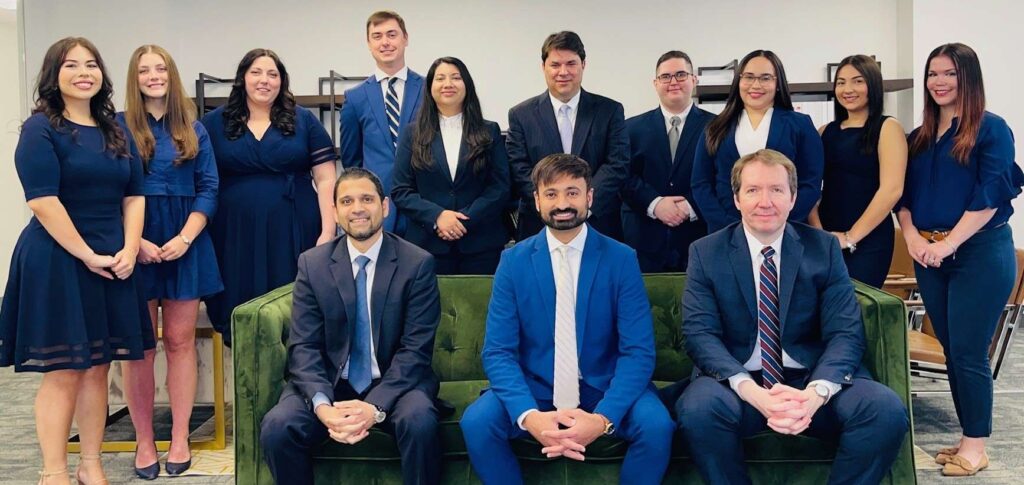Protecting Your Rights Against Abusive Debt Collectors
Dealing with debt collectors can be an overwhelming experience, especially when their tactics cross the line into harassment or deception. Fortunately, the Fair Debt Collection Practices Act (FDCPA) offers robust protections for consumers. At Texas Detb Law, our Dallas-based attorneys specialize in enforcing these rights, ensuring that debt collectors are held accountable for any misconduct.

Understanding the Fair Debt Collection Practices Act (FDCPA)
Enacted in 1977, the FDCPA is a federal law designed to eliminate abusive debt collection practices. It sets clear boundaries on how debt collectors can interact with consumers, aiming to protect individuals from harassment, false statements, and unfair practices.
Key Protections Under the FDCPA
The FDCPA prohibits debt collectors from engaging in behaviors such as:
- Harassment: Repeated phone calls intended to annoy or abuse.
- False Statements: Misrepresenting the amount owed or falsely claiming legal authority.
- Unfair Practices: Collecting amounts not authorized by the original agreement or law.
- Unauthorized Communication: Contacting third parties about your debt without permission.
These protections apply regardless of whether the debt is valid, emphasizing the law’s focus on fair treatment.
Common Violations by Debt Collectors
Despite clear regulations, many debt collectors engage in practices that violate the FDCPA. Common infractions include:
- Frequent Calls: Making multiple calls in a short period to pressure payment.
- Inconvenient Timing: Calling before 8 a.m. or after 9 p.m.
- Workplace Contact: Reaching out to your employer after being asked not to.
- Threats: Claiming you will be arrested or face legal action they cannot take.
- Misrepresentation: Falsely identifying themselves as attorneys or government officials.
- Failure to Validate Debt: Not providing written notice of the debt within five days of initial contact.
Such actions not only breach the FDCPA but can also cause significant emotional distress.
Your Rights as a Consumer
If you believe a debt collector has violated your rights under the FDCPA, you have the legal authority to take action. This includes:
- Filing a Lawsuit: You can sue the debt collector in state or federal court.
- Seeking Damages: Courts may award up to $1,000 in statutory damages, plus actual damages for any harm suffered.
- Recovering Attorney’s Fees: If you win your case, the debt collector may be required to pay your legal fees.
Importantly, these rights apply even if you owe the debt in question.
The Role of Texas Debt Law in Protecting Consumers
At Texas Debt Law, we are committed to defending the rights of consumers in Dallas and throughout Texas. Our experienced attorneys understand the nuances of the FDCPA and are adept at identifying violations.
Our Approach
When you contact us, we will:
- Evaluate Your Case: Assess the details of your situation to determine if the FDCPA has been violated.
- Gather Evidence: Collect necessary documentation, such as call logs and correspondence.
- File Legal Action: Initiate a lawsuit against the debt collector if warranted.
- Seek Compensation: Aim to recover damages for any harm you’ve experienced.
Our goal is not only to stop the harassment but also to hold debt collectors accountable for their actions.
Real-Life Impact: Case Studies
Consider the following scenarios:
- Repeated Harassment: A Dallas resident received over 20 calls in a single day from a debt collector. Despite requests to stop, the calls continued, causing significant stress. Texas Debt Law intervened, filed a lawsuit, and secured a favorable settlement for the client.
- False Threats: Another client was told they would be arrested if they didn’t pay a debt immediately. This threat was baseless and illegal. Our firm took swift action, resulting in the cessation of contact and compensation for the client.
These cases highlight the importance of understanding and asserting your rights under the FDCPA.
How to Respond to Debt Collector Misconduct
If you suspect a debt collector is violating the FDCPA:
- Document Everything: Keep records of all communications, including dates, times, and content.
- Request Written Verification: Ask the collector to provide written proof of the debt.
- Limit Communication: Inform the collector in writing that you wish to cease further contact.
- Consult an Attorney: Reach out to a legal professional experienced in FDCPA cases.
Taking these steps can help protect your rights and build a strong case if legal action becomes necessary.
Preventing Future Issues
To minimize the risk of encountering abusive debt collection practices:
- Know Your Rights: Familiarize yourself with the FDCPA and related consumer protection laws.
- Monitor Your Credit: Regularly check your credit reports for inaccuracies or unfamiliar accounts.
- Communicate in Writing: When dealing with debt collectors, opt for written communication to maintain a clear record.
Being proactive can help you stay ahead of potential issues and ensure you’re prepared to respond effectively.
Contact Texas Debt Law for Assistance
If you’re facing harassment or deceptive practices from debt collectors, don’t hesitate to seek legal help. At Texas Debt Law, we offer:
- Free Consultations: Discuss your situation with our attorneys at no cost.
- Expert Guidance: Benefit from our extensive experience in FDCPA cases.
- Dedicated Representation: Trust our team to advocate fiercely on your behalf.

